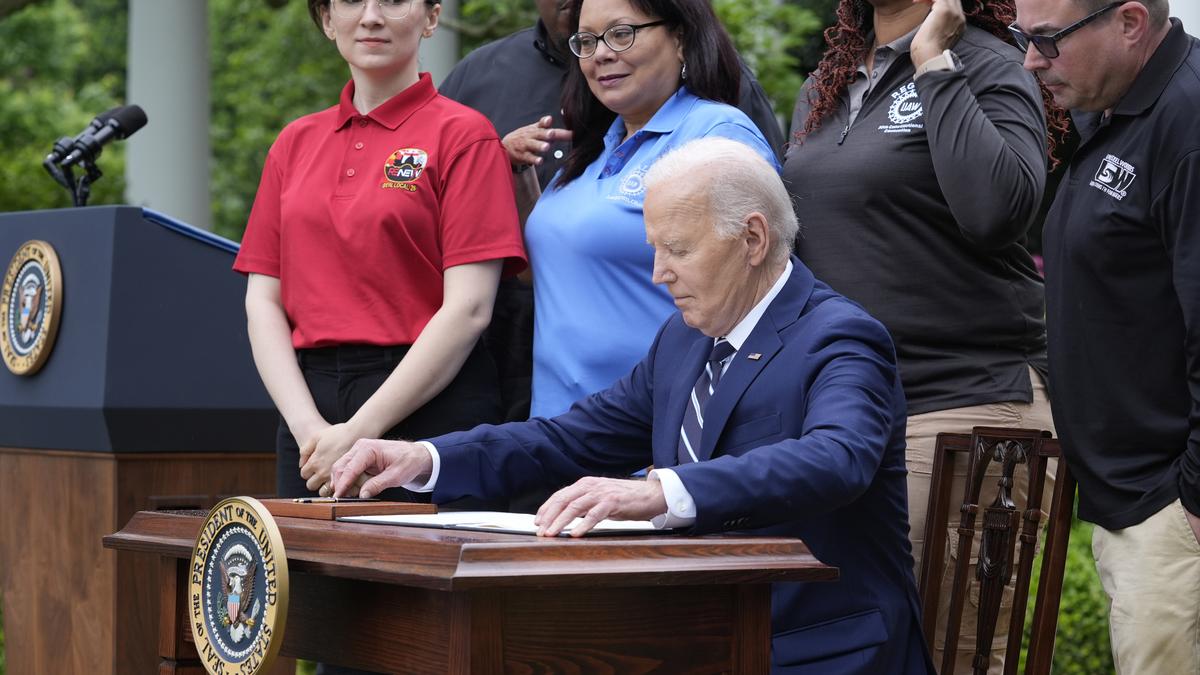
The high cost of a global economic decoupling Premium
The Hindu
Global investors would deeply feel the psychological effects of decoupling
The announcement by United States President Joe Biden, in May, to slap a fresh round of tariffs on a range of Chinese imports, has refuelled fears of a new phase of decoupling in the world economy. Siding with Washington, policymakers in Europe are also deliberating having a ‘united front’ to counter China’s pursuit of coercive economic practices.
While this may define the trajectory of China-U.S. relations, it is not clear what the long-term costs are going to be. With China, the West’s trade risk calculations have increasingly become a function of national security. Contesting the liberal premise, the new political rhetoric in Washington assumes that since economic interdependence does not benefit China and the U.S. equally, it is likely that Beijing will weaponise vulnerabilities to its ends. In fact, the Biden administration’s decision to resume a tariff war with China, reveals how political, and not economic, considerations become key in deciding what goods would receive tariff increases.
The latest tariff on Chinese electric vehicles (EV) is a case in point. Given that the U.S. imports few EVs from China, the decision reinforces Mr. Biden’s pro-union stance and his support for the ongoing efforts of the United Auto Workers (UAW) to scale up EV manufacturing domestically. Conceived as a pre-emptive measure, the quadrupling of tariffs from 25% also explains the fear that the American auto union has vis-à-vis the fast-growing Chinese car and battery industry and its ability to outcompete traditional domestic automakers in no time.
The new tariffs on medical devices, on the other hand, are a straightforward way to grow independent of China. For a decade now, China has been the primary source of medical equipment to the U.S., with imports nearing $640 million in 2023.
Many American health-care businesses have their manufacturing and research laboratories in China, and they have been ramping up their investments owing to China’s growing health-care needs for the elderly and demand for quality health-care services. However, the deepening mistrust between the leaders of China and the U.S. creates pressure on the private sector and is likely to increase the burden of health-care costs on domestic patients in both countries. What protectionist enthusiasts often forget is that the costs of protection are borne through higher prices paid by consumers.
While continuity with the Trump-era tariffs seems to be the obvious answer to deal with an aggressive China, the world economic situation is at odds with the geopolitical realities. The vicious cycle of tit-for-tat tariffs further exacerbates the dangers arising out of protectionism, encouraging other countries to follow suit. Moreover, the new import restrictions on Chinese clean energy products would delay the green transition targets and the expansion of renewables worldwide. As China faces slowing growth and rising household debts, many western multinationals dependent on China’s vast consumer market will see a dip in their earnings.
For resource-rich countries such as Australia and Brazil, a slowing Chinese economy would not only hurt their exports in various commodities but also create downward pressures on iron-ore prices. For these economies that are heavily dependent on China for their exports, diversifying into other markets is never an easy task.

More than 2.6 lakh village and ward volunteers in Andhra Pradesh, once celebrated as the government’s grassroots champions for their crucial role in implementing welfare schemes, are now in a dilemma after learning that their tenure has not been renewed after August 2023 even though they have been paid honoraria till June 2024. Disowned by both YSRCP, which was in power when they were appointed, and the current ruling TDP, which made a poll promise to double their pay, these former volunteers are ruing the day they signed up for the role which they don’t know if even still exists

















